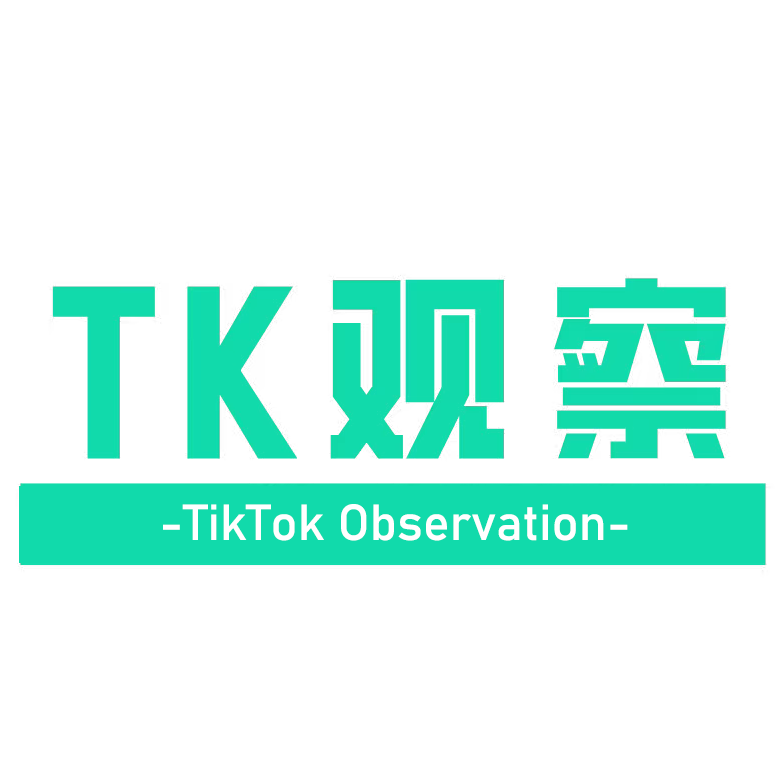SUBSCRIBER ONLY Maryland considers rights of child influencers in family videos

TKFFF · 2024-03-11 16:49
 Building an audience on TikTok has been a way for Cam Barrett to reclaim part of her identity after spending much of her childhood as an unwitting social media influencer.
As early as she can remember, her adoptive mom posted about her on platforms like Facebook and MySpace. From intimate details about her adoption to her first period, the private information made public without her permission has had a lasting impact on the now 25-year-old. Barrett, who uses she/they pronouns, said that finally being able to be herself online helped them decide to become an activist for protecting child influencers.
“I didn’t have anyone to speak up or do anything when I was that age going through this, and I think we have to start somewhere,” said Barrett, who last month testified in favor of Maryland legislation that would give child influencers special rights. Maryland’s House Bill 645 and Senate Bill 1162, modeled after a first-of-its-kind law in Barrett’s home state of Illinois, entitle certain young influencers to a share of the earnings from video content they’re featured in, to be set aside in a trust.
Maryland is among at least nine states entertaining laws like the one in Illinois that takes effect in July and is based on legislation first introduced in Washington state. Here, it goes a step further by allowing children, upon turning 18, to request that a social media platform delete video content in which they were featured as minors — known as a “right to be forgotten” — and would hold social media platforms accountable to take “all reasonable steps” to comply.
“When Illinois passed the bill without having that in the bill, it was a very bittersweet moment,” Barrett told The Baltimore Sun. “I know what it would mean to have the option to … work with social media companies to have the content removed, but it’s also just part of claiming your identity back.”
Family vlogging, short for video blogging, has become widely popular on platforms like YouTube and Instagram. The effort can be lucrative. A YouTube account with a million subscribers posting weekly could make $936,000 a year just from ads, according to Influencer Marketing Hub.
Much like child actor laws, the proposed legislation aims to safeguard kids featured in content consumed by millions of viewers. It also would include minors that qualify for compensation under the bill in the state’s child labor law, which otherwise excludes children who work at parent-owned businesses.
Del. Jazz Lewis, who’s worked on other youth issues such as restricting prisons from placing minors in solitary confinement, said he introduced the House version of the vlogging bill after hearing from advocates and influencers.
“I think there’s this national campaign afoot of how do we protect the children of social media influencers as well as child influencers themselves?” the Prince George’s County Democrat said. “They came to me and started sharing their stories, and I just kind of got [convinced] that we needed to do more.”
One of the most well-known instances of family vlogging gone wrong in Maryland occurred in Frederick County, where the couple behind the YouTube channel “DaddyOFive,” Michael and Heather Martin, were sentenced to five years of probation on child neglect charges in 2017. Two of the children in the videos were placed into the custody of their biological mother.
As of this month, the Martins’ three other children were part of a channel called “The Martin Family” whose bio says that their “parents were wrongfully, accused of things they did not do but made the best choices they could for all of us at the time.”
Amendments to HB645 are being discussed, mostly around the “right to be forgotten” provision, according to Lewis’ chief of staff Henry Snurr. The cross-filed bill in the Senate, sponsored by Sen. Clarence Lam of Howard County, has been referred to committee.
The bill targets accounts making significant money and consistently featuring kids, said Chris McCarty, the student founder and executive director of advocacy organization Quit Clicking Kids.
Under the proposed law, a parent vlogger would be required to compensate their minor child featured in their video content if, at any point within a year, they either qualify for compensation from a social media platform or earn 10 cents or more per view of video content. In either instance, their child must also be featured in at least 30% of content posted during any monthlong period in the previous year.
A parent vlogger required to compensate a child influencer would be obligated to place into a trust a share of their earnings commensurate with the child’s presence in the content. If multiple children are eligible to be paid, the percentage of screen time where at least one child is featured is used, and money is divided evenly between the children and put into separate trusts. A child could access the trust when they turn 18. If not properly compensated, a child could sue their parents/guardians for the money they are owed under the bill, according to Snurr.
The bill considers only “revenue generated by the video content itself right now,” Snurr said in an email, even though there are ways for influencers to make money apart from videos. These “gray spaces” are being explored, said McCarty, who helped draft Maryland’s legislation and testified for it.
“The majority of your money is going to be made from affiliate links or from brand deals. … It still should fall into [the proposed legislation], because you’re only getting it because you’re posting it on social media,” said Baltimore County resident Lisa Summers, who rounds up activities for families and adults on TikTok, Instagram and YouTube as “Its Summers Somewhere.”
Building an audience on TikTok has been a way for Cam Barrett to reclaim part of her identity after spending much of her childhood as an unwitting social media influencer.
As early as she can remember, her adoptive mom posted about her on platforms like Facebook and MySpace. From intimate details about her adoption to her first period, the private information made public without her permission has had a lasting impact on the now 25-year-old. Barrett, who uses she/they pronouns, said that finally being able to be herself online helped them decide to become an activist for protecting child influencers.
“I didn’t have anyone to speak up or do anything when I was that age going through this, and I think we have to start somewhere,” said Barrett, who last month testified in favor of Maryland legislation that would give child influencers special rights. Maryland’s House Bill 645 and Senate Bill 1162, modeled after a first-of-its-kind law in Barrett’s home state of Illinois, entitle certain young influencers to a share of the earnings from video content they’re featured in, to be set aside in a trust.
Maryland is among at least nine states entertaining laws like the one in Illinois that takes effect in July and is based on legislation first introduced in Washington state. Here, it goes a step further by allowing children, upon turning 18, to request that a social media platform delete video content in which they were featured as minors — known as a “right to be forgotten” — and would hold social media platforms accountable to take “all reasonable steps” to comply.
“When Illinois passed the bill without having that in the bill, it was a very bittersweet moment,” Barrett told The Baltimore Sun. “I know what it would mean to have the option to … work with social media companies to have the content removed, but it’s also just part of claiming your identity back.”
Family vlogging, short for video blogging, has become widely popular on platforms like YouTube and Instagram. The effort can be lucrative. A YouTube account with a million subscribers posting weekly could make $936,000 a year just from ads, according to Influencer Marketing Hub.
Much like child actor laws, the proposed legislation aims to safeguard kids featured in content consumed by millions of viewers. It also would include minors that qualify for compensation under the bill in the state’s child labor law, which otherwise excludes children who work at parent-owned businesses.
Del. Jazz Lewis, who’s worked on other youth issues such as restricting prisons from placing minors in solitary confinement, said he introduced the House version of the vlogging bill after hearing from advocates and influencers.
“I think there’s this national campaign afoot of how do we protect the children of social media influencers as well as child influencers themselves?” the Prince George’s County Democrat said. “They came to me and started sharing their stories, and I just kind of got [convinced] that we needed to do more.”
One of the most well-known instances of family vlogging gone wrong in Maryland occurred in Frederick County, where the couple behind the YouTube channel “DaddyOFive,” Michael and Heather Martin, were sentenced to five years of probation on child neglect charges in 2017. Two of the children in the videos were placed into the custody of their biological mother.
As of this month, the Martins’ three other children were part of a channel called “The Martin Family” whose bio says that their “parents were wrongfully, accused of things they did not do but made the best choices they could for all of us at the time.”
Amendments to HB645 are being discussed, mostly around the “right to be forgotten” provision, according to Lewis’ chief of staff Henry Snurr. The cross-filed bill in the Senate, sponsored by Sen. Clarence Lam of Howard County, has been referred to committee.
The bill targets accounts making significant money and consistently featuring kids, said Chris McCarty, the student founder and executive director of advocacy organization Quit Clicking Kids.
Under the proposed law, a parent vlogger would be required to compensate their minor child featured in their video content if, at any point within a year, they either qualify for compensation from a social media platform or earn 10 cents or more per view of video content. In either instance, their child must also be featured in at least 30% of content posted during any monthlong period in the previous year.
A parent vlogger required to compensate a child influencer would be obligated to place into a trust a share of their earnings commensurate with the child’s presence in the content. If multiple children are eligible to be paid, the percentage of screen time where at least one child is featured is used, and money is divided evenly between the children and put into separate trusts. A child could access the trust when they turn 18. If not properly compensated, a child could sue their parents/guardians for the money they are owed under the bill, according to Snurr.
The bill considers only “revenue generated by the video content itself right now,” Snurr said in an email, even though there are ways for influencers to make money apart from videos. These “gray spaces” are being explored, said McCarty, who helped draft Maryland’s legislation and testified for it.
“The majority of your money is going to be made from affiliate links or from brand deals. … It still should fall into [the proposed legislation], because you’re only getting it because you’re posting it on social media,” said Baltimore County resident Lisa Summers, who rounds up activities for families and adults on TikTok, Instagram and YouTube as “Its Summers Somewhere.”
 Summers has surpassed 144,000 followers combined and made money from brand deals including with Chuck E. Cheese. Though her Instagram and TikTok accounts are “eligible for monetization,” Summers said she’s not receiving any payout from the platforms themselves linked to views.
She said her and her husband Tony Summers’ two children — Journey, 6 and Apollo, 4 — only sometimes appear in her videos.
“Anyone that works should get paid for their job,” Summers said of kids who would be impacted by the proposed legislation, drawing a comparison to child actors. “Although they’re getting … free trips and free fun, that’s not enough. Because 10 years from now, they’ll still be on the internet.”
Summers’ kids receive an allowance and also have savings accounts, she said. HB645 and SB1162 ought to allow for more flexibility regarding where money is funneled away for children, she said, like allowing for a Roth IRA retirement account or a 529 college saving plan in lieu of establishing a trust.
Heather Aranda, the Montgomery County mom behind “The Family Arcade,” an Instagram account with 140,000 followers, suggested some children will want a say in how they are compensated.
“If we were to tell our almost 13-year-old boy, ‘Honey, we’d like to put the money that you’re going to receive … away for you.’ … Our son would say, ‘Don’t I get a choice?’” said Aranda, whose videos frequently feature some of her and husband Jaime Aranda’s eight children.
The family’s account made up to around 10 cents per view as part of Instagram’s Reels trial a few years ago, she said. Today, the family sometimes receives free products and small payments from working with brands or via affiliate links.
Both Aranda and Summers support a person’s right to request that videos they appear in as a minor are deleted. So does Jill Smokler, the Baltimore County mom behind “Scary Mommy,” a blog she started in 2008 to write and share photos of her experience raising a family.
But Smokler notes that on the internet, it isn’t always easy to ensure that every trace of a video or social media post is erased.
“It’s so hard to get anything off of the internet, because [content] doesn’t live in one place anymore. So how could you possibly find all the places where something lives?” Smokler said.
Margaret Durkin, executive director of the trade association TechNet, voiced concern at HB645’s February hearing in the Economic Matters Committee about the “right to be forgotten” aspect of the bill as originally written. She noted, for instance, that there’s no mechanism for removing content individuals publish outside a centralized platform.
Smokler said she stopped writing about her kids as her oldest became a tween, and sold “Scary Mommy” in 2015 to a New York-based media company. “It’s such a different climate…,” Smokler said. “I would be very hesitant to put my ki out there now.”
[ad]
Summers has surpassed 144,000 followers combined and made money from brand deals including with Chuck E. Cheese. Though her Instagram and TikTok accounts are “eligible for monetization,” Summers said she’s not receiving any payout from the platforms themselves linked to views.
She said her and her husband Tony Summers’ two children — Journey, 6 and Apollo, 4 — only sometimes appear in her videos.
“Anyone that works should get paid for their job,” Summers said of kids who would be impacted by the proposed legislation, drawing a comparison to child actors. “Although they’re getting … free trips and free fun, that’s not enough. Because 10 years from now, they’ll still be on the internet.”
Summers’ kids receive an allowance and also have savings accounts, she said. HB645 and SB1162 ought to allow for more flexibility regarding where money is funneled away for children, she said, like allowing for a Roth IRA retirement account or a 529 college saving plan in lieu of establishing a trust.
Heather Aranda, the Montgomery County mom behind “The Family Arcade,” an Instagram account with 140,000 followers, suggested some children will want a say in how they are compensated.
“If we were to tell our almost 13-year-old boy, ‘Honey, we’d like to put the money that you’re going to receive … away for you.’ … Our son would say, ‘Don’t I get a choice?’” said Aranda, whose videos frequently feature some of her and husband Jaime Aranda’s eight children.
The family’s account made up to around 10 cents per view as part of Instagram’s Reels trial a few years ago, she said. Today, the family sometimes receives free products and small payments from working with brands or via affiliate links.
Both Aranda and Summers support a person’s right to request that videos they appear in as a minor are deleted. So does Jill Smokler, the Baltimore County mom behind “Scary Mommy,” a blog she started in 2008 to write and share photos of her experience raising a family.
But Smokler notes that on the internet, it isn’t always easy to ensure that every trace of a video or social media post is erased.
“It’s so hard to get anything off of the internet, because [content] doesn’t live in one place anymore. So how could you possibly find all the places where something lives?” Smokler said.
Margaret Durkin, executive director of the trade association TechNet, voiced concern at HB645’s February hearing in the Economic Matters Committee about the “right to be forgotten” aspect of the bill as originally written. She noted, for instance, that there’s no mechanism for removing content individuals publish outside a centralized platform.
Smokler said she stopped writing about her kids as her oldest became a tween, and sold “Scary Mommy” in 2015 to a New York-based media company. “It’s such a different climate…,” Smokler said. “I would be very hesitant to put my ki out there now.”
[ad]
文章来源:Baltimore Sun
TKFFF公众号
扫码关注领【TK运营地图】

TKFFF合作,请扫码联系!

文章来源: 文章该内容为作者观点,TKFFF仅提供信息存储空间服务,不代表TKFFF的观点或立场。版权归原作者所有,未经允许不得转载。对于因本网站图片、内容所引起的纠纷、损失等,TKFFF均不承担侵权行为的连带责任。如发现本站文章存在版权问题,请联系:1280199022@qq.com
分享给好友:











